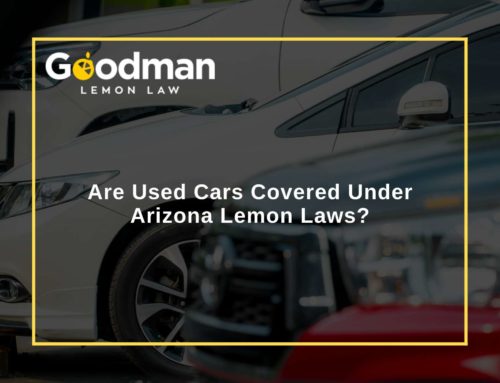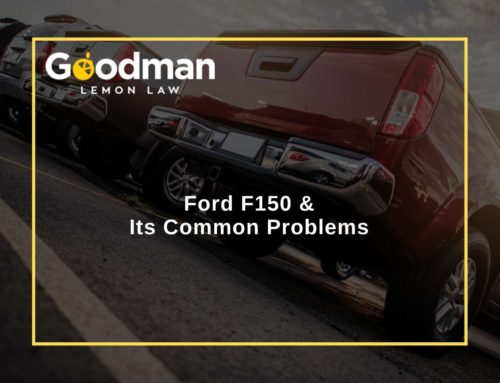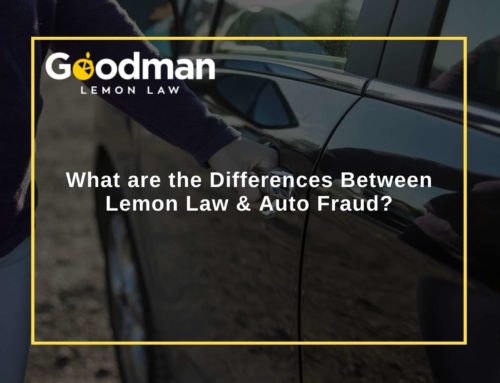How Do RV Lemon Laws Work In Arizona?
As the housing market prices continue to rise, many Americans are making the choice to own residential vehicles, either as their primary home or for vacationing. Although owning an RV has brought financial freedom or convenience to the lives of many, the increase in RV sales also means an increase in defects, consumer complaints, complications, and legal issues. Many new RV owners are left wondering what to do when their RV turns out to be a lemon. Consider these suggestions from a Tempe lemon law attorney to understand what you need to know.

RV Lemon Law Is Different From Lemon Laws For Cars
When they buy an RV, some owners expect the process to be similar to owning a car. However, recreational vehicles have different complications and different legal protections than other types of vehicles. Vehicles that are considered to be recreational vehicles include:
- Class A, B, and C motorhomes
- Fifth wheel trailers
- Toy haulers
- Travel trailers
- Truck campers
Although RVs share many of the same mechanical systems as a typical vehicle, they also have other features, such as plumbing, appliances, furnishings, and additional electrical and climate control systems. Any of these features or systems can potentially fail, resulting in inconvenience, expense, and an urgent need for repair.
Unfortunately, when RVs run into problems, they can be more difficult to repair than an average car repair. In many cases, RV owners are in rural areas many miles away from home or from a dealer who has the capability to repair the RV. If your RV is your home, the impact of a malfunction can be extremely inconvenient. Extensive problems can mean dealing with multiple manufacturers in order to get resolution, which can be frustrating and time consuming.
It’s important to remember that RVs are not cars, and that they need a lot of routine maintenance just like a home does. However, this is not mean that RV owners should accept defects as a normal part of owning an RV. There is a big difference between a defect and an issue that results from poor maintenance. If you suspect that your new RV is a lemon, get in touch with an experienced Chandler lemon law attorney for RVs to learn more about what to do next.
What Common Problems Might Indicate That My RV Is A “Lemon”?
Legally speaking, when a vehicle such as an RV is a “lemon,” it means that the vehicle has a significant defect that substantially reduces its safety, use, or value.
Common problems that might indicate that your RV is a “lemon” include:
Electrical malfunctions: If your RV’s electrical or lighting systems are not working, you may be unable to drive your RV in certain conditions. Lack of lighting can be a serious safety risk that also affects the livability of your RV.
Leaking: RV leaks can be exterior, such as doors and window seals, or interior, such as from the toilet or shower. RVs can also face typical engine leaking like any other vehicle. Leaks can lead to rust, mold and mildew, lack of drivability, and lack of safety if it affects the wiring inside the RV.
Structural problems: Defects in the wall panels, windows, or doors can make an RV unsafe and require costly repairs to fix.
Faulty appliances: Any of the appliances in an RV, including the refrigerator, washer, dryer, cooktop, or microwave, can fail.
Low quality materials: RVs are sometimes produced with low quality materials that cannot withstand normal use.
Lack of customer service: Some dealers and manufacturers do not want to provide sufficient customer service or help with questions, problems, and concerns.
Any of these complications can result in an RV that is unsafe for living, driving, or both. Contact your Glendale lemon law lawyer for guidance on how to manage the situation.
What Are The Lemon Laws For RVs?
If your RV is a lemon, there are multiple ways to pursue repair or compensation. Your RV may be covered under the law of the state where you bought the RV. It doesn’t matter which state you are currently living in or where the RV is located. Some state laws will limit how far lemon law coverage goes. For example, in some states, lemon law protection does not include the living quarter portion of your RV.
However, the Magnuson-Moss Warranty Act is a federal law that applies to all RVs across the United States. This Act requires sellers to honor their warranty or provide cash compensation if they do not. The seller is required to complete a reasonable number of attempts to repair the issue, usually three or four attempts, before cash compensation becomes an option for the owner. Arbitration attempts may also be required. In these situations, working with an experienced Tempe lemon law lawyer can be extremely valuable.
Unlike some state laws, the Magnuson-Moss Warranty Act does not impose mileage restrictions, and the dealer or manufacturer will typically be required to pay for the attorney fees. Consult with your Chandler lemon law lawyer for RVs to learn more about how this law may apply to your lemon RV.
Get The Experienced Legal Guidance You Need For Lemon RVs
If you are facing serious defects in your RV that affect its function or safety, get in touch with Goodman Lemon Law PLLC. As an experienced lemon law lawyer in Arizona, Goodman Law Group is ready to provide answers and directions to resolve your situation. We are experienced with negotiation, arbitration, and navigating the complex legal issues that can result from a defective lemon RV in Arizona. Contact us today to schedule your free case review!

935 E Main St., Suite 205,
Mesa. AZ 85203
Office: (480) 808-1538







